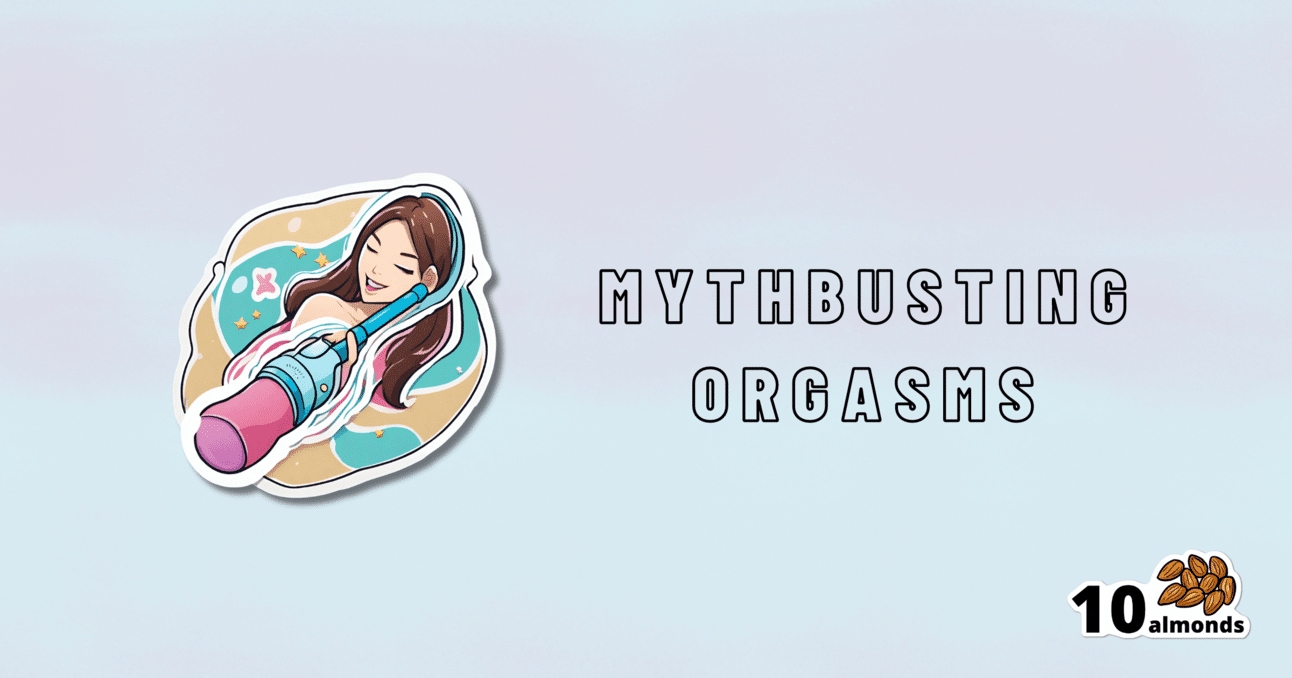Mythbusting The Big O
Orgasms: essential for good health? False. But the benefits are real, if marginal. Find out more about the science behind the pleasure.

“Early To Bed…”
In yesterday’s newsletter, we asked you for your (health-related) views on orgasms.
But what does the science say?
Orgasms are essential to good health: True or False?
False, in the most literal sense. One certainly won’t die without them. Anorgasmia (the inability to orgasm) is a condition that affects many postmenopausal women, some younger women, and some men. And importantly, it isn’t fatal—just generally considered unfortunate:
Anorgasmia Might Explain Why You’re Not Orgasming When You Want To
That article focuses on women; here’s a paper focusing on men:
Orgasms are good for the health, but marginally: True or False?
True! They have a wide array of benefits, depending on various factors (including, of course, one’s own sex). That said, the benefits are so marginal that we don’t have a flock of studies to cite, and are reduced to pop-science sources that verbally cite studies that are, alas, nowhere to be found, for example:
- For women: 9 Orgasm Benefits That Might Surprise You
- For men: 9 Ways Orgasms May Benefit Your Health
Doubtlessly the studies do exist, but are sparse enough that finding them is a nightmare as the keywords for them will bring up a lot of studies about orgasms and health that aren’t answering the above question (usually: health’s affect on orgasms, rather than the other way around).
There is some good science for post-menopausal women, though! Here it is:
Misconceptions About Sexual Health in Older Women
(if you have the time to read this, this also covers many very avoidable things that can disrupt sexual function, in ways that people will errantly chalk up to old age, not knowing that they are missing out needlessly)
Orgasms are good or bad, depending on being male or female: True or False
False, broadly. The health benefits are extant and marginal for almost everyone, as indicated above.
What’s that “almost” about, then?
There are a very few* people (usually men) for whom it doesn’t go well. In such cases, they have a chronic and lifelong problem whereby orgasm is followed by 2–7 days of flu-like and allergic symptoms. Little is known about it, but it appears to be some sort of autoimmune disorder.
Read more: Post-orgasmic illness syndrome: history and current perspectives
*It’s hard to say for sure how few though, as it is surely under-reported and thus under-diagnosed; likely even misdiagnosed if the patient doesn’t realize that orgasms are the trigger for such episodes, and the doctor doesn’t think to ask. Instead, they will be busy trying to eliminate foods from the diet, things like that, while missing this cause.
Orgasms are better avoided for optimal health: True or False?
Aside from the above, False. There is a common myth for men of health benefits of “semen retention”, but it is not based in science, just tradition. You can read a little about it here:
The short version is: do it if you want; don’t if you don’t; the body will compensate either way so it won’t make a meaningful difference to anything for most people, healthwise.
Small counterpoint: while withholding orgasm (and ejaculation) is not harmful to health, what does physiologically need draining sometimes is prostate fluid. But that can also be achieved mechanically through prostate milking, or left to fend for itself (as it will in nocturnal emissions, popularly called wet dreams). However, if you have problems with an enlarged prostate, it may not be a bad idea to take matters into your own hands, so to speak. As ever, do check with your doctor if you have (or think you may have) a condition that might affect this.
One final word…
We’re done with mythbusting for today, but we wanted to share this study that we came across (so to speak) while researching, as it’s very interesting:
On which note: if you haven’t already, consider getting a “magic wand” style vibe; you can thank us later (this writer’s opinion: everyone should have one!).
Top tip: do get the kind that plugs into the wall, not rechargeable. The plug-into-the-wall kind are more powerful, and last much longer (both “in the moment”, and in terms of how long the device itself lasts).
Enjoy!
Share This Post
Learn To Grow
Sign up for weekly gardening tips, product reviews and discounts.




